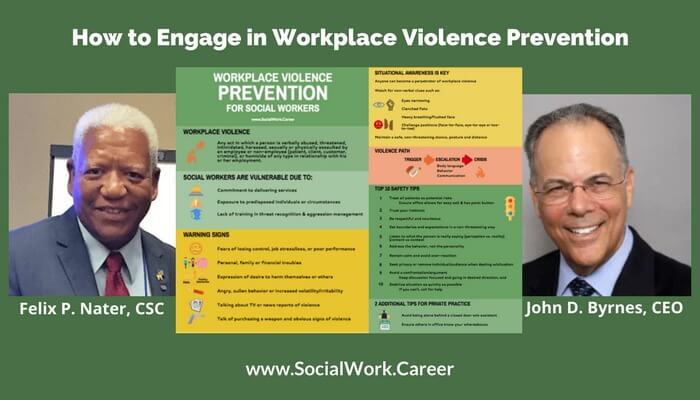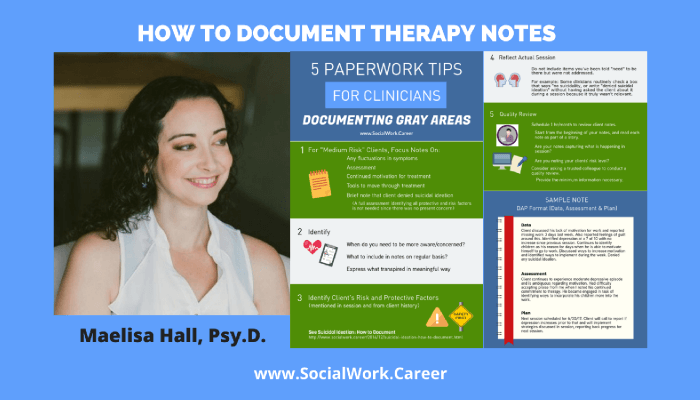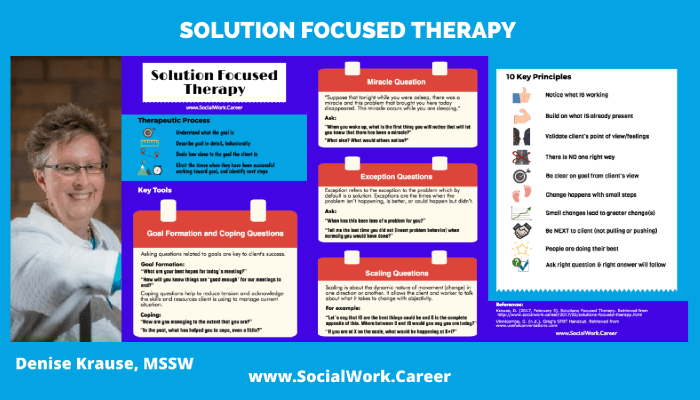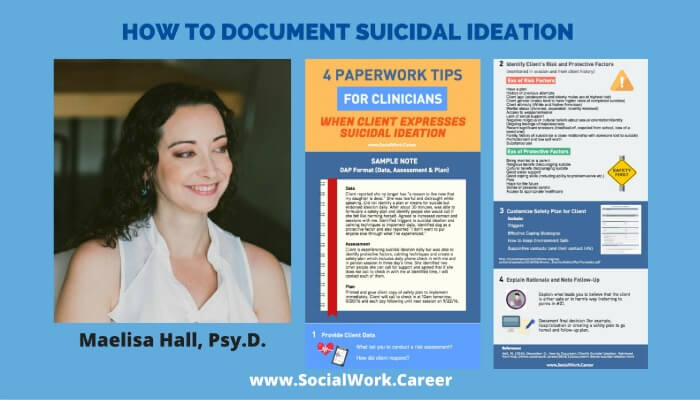Financial self-care leads to greater financial health and overall wellbeing. Would you like to improve your financial self-care? This post will provide you with a brief introduction to Financial Social Work, and how to begin to engage in better financial self-care. Financial Social Work is an interactive and introspective psychosocial behavioral model developed by Reeta Wolfsohn, CMSW, that helps […]
Workplace Violence Prevention for Social Workers
Workplace violence prevention is a topic of great interest to social workers and mental health clinicians. This is because health care workers are more likely than workers overall to be assaulted at work, as per the U.S. Government Accountability Office (GAO, 2016). The most common types of assaults are hitting, kicking and beating and the […]
Therapy Notes: How to Document Gray Areas
Therapy Notes: 5 Tips for Clinicians Documenting Gray Areas: Risk Assessment for “Medium Risk” Clients All counselors understand that high risk situations, such as a client reporting suicidal thoughts, require significant and timely therapy notes. However, what about the gray areas we encounter on a daily basis? The situations that linger and don’t quite meet […]
Solution Focused Therapy: Key Principles and Case Example
What is Solution Focused Therapy? And how may you use Solution Focused Therapy (SFT) to empower your clients to get unstuck and achieve their goals? Today, we have the honor of an interview with Denise J. Krause, MSSW, a Clinical Professor and Associate Dean for Community Engagement and Alumni Relations at the University at Buffalo School of […]
Suicidal Ideation: How to Document
Suicidal Ideation: 4 Documentation Tips What to Write When a Client Tells You They Are Contemplating Suicide When a client expresses suicidal ideation i.e., a client tells you they no longer want to live and is able to describe how they would end their life, most counselors go into a place of both hyperfocus and multitasking. They […]





